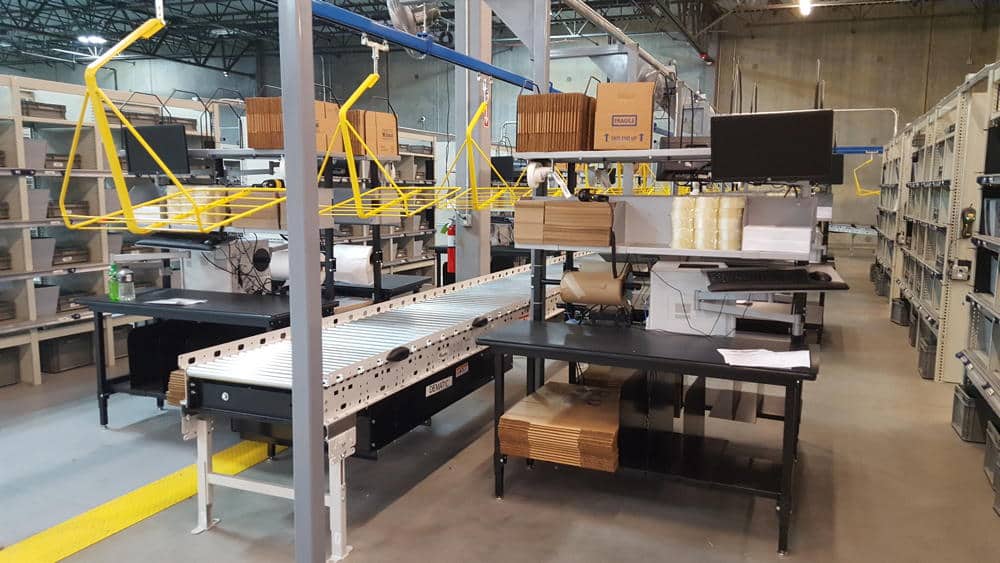I had intended to run down some key filings and developments in the Diamond Bankruptcy, but alas, just as I sat down to write, the public filings page went down for maintenance – but here’s a brief run down of the biggest developments pieced together:
MONDAY IS THE BIG DAY FOR THE HEARING
On Monday, August 18th, a hearing will be held to go over many many pending matters. Graphic Policy has a thorough overview of the items covered, which include:
- Diamond’s motion for the sale or disposition of the inventory it still has
- The sale and purchase of Diamond UK
- The Ad Hoc committee’s motion for a stay in Diamond’s motion for the sale of inventory
- A motion dealing with an order that’d require Diamond to assume or reject the contracts it has with some of the publishers
Items entered into evidence for all of this will include all kinds of contracts, so everyone’s business will be laid bare, and the witness list includes Robert Gorin, Co-Chief Restructuring Officer for all of this, as well as Steve Leaf, a former Diamond employee who now works for Hermes Press, one of the Consignment Group’s companies.
The heart of the matter is Diamond’s plan to sell their inventory to raise money to pay Chase bank. Opposing them are several groups:
• The Ad Hoc Committee of Consignors, consisting of Ablaze, American Mythology Productions, Avatar Press, Battle Quest Comics, Action Lab, Drawn & Quarterly, Fantagraphics, Green Ronin, Hermes Press, Living the Line, Paizo, Udon and Zenescope.
• Another group of publishers, consisting of Aspen, Black Mask Studios, DSTLRY, Dark Horse, Dynamic Forces/Dynamite, Heavy Metal, Magnetic Press, Massive Publishing, Oni-Lion Forge Publishing, Panini UK, Punk Bot Comics/Alien Books, Titan Publishing, and Vault Comics. These are called the “Consignment Group.”
• A group led by gaming organization GAMA consisting of Skyscraper Studios, Roll for Combat, Liminal Esports, and Snowbright Studio, the “Gama Group”
All of these groups have filed various objections to the sale of their goods which were held by Diamond on a consignment basis, citing various precedents.
Late yesterday, a flurry of filings went through including Chase Bank’s and Diamond’s objections to these objections. Lots and lots of dense legalese, but Diamond’s intro begins:
The Consignment Vendors miss the mark in seeking to block the sale of the Consigned Inventory pursuant to the Consignment Sale Motion. As explained in detail below, the Consignment Vendors hold a defective position—their failure to file UCC-1 financing statements dooms their property interest in the Consigned Inventory. It is the Debtors who now own the Consigned Inventory and, ultimately, the Lender who holds a first priority lien interest in these assets. The Debtors have amply demonstrated a bona fide dispute as to ownership of these assets.
That dispute, by itself, vests the Debtors with sufficient statutory authority to sell the Consigned Inventory. The Consignment Vendors have the burden of proof under Maryland law to demonstrate an exception to the statutory UCC provisions relied upon by the Debtors and the Lender. By failing to meet this burden of proof, and by relying upon unpersuasive and out-of- circuit authority, the Consignment Vendors have forfeited their opportunity to block the sale of the Consigned Inventory. The Consignment Sale Motion should be granted.
Diamond’s position seems to be relying heavily on the lack of UCC-1 filings: a form which was “a legal form that a secured party files to give notice that it has or may have an interest in the personal property of a debtor.” The Consignment Vendors argue that their individual agreements with Diamond meant that they did not need to file the UCC-1s, as well as many other precedents about the amount of consigned inventory.
The above are both very very simplistic breakdowns of the positions, and both sides have lots of legal precedent to back them up.
Also of note: in addition to the Debtor (Diamond) we now also have the Lender (Chase Bank) arrayed against the Consigned Vendors. Chase lent Diamond some $47.7 million to keep Diamond running while they were bleeding money out, and has now filed their own objection to the objections.
But take note, in one filing Diamond notes that “The Debtors have reached a resolution in principle with respect to the objection filed by Image Comics, Inc. [D.I. 612], and therefore do not address Image’s objection in this Reply.”
Image had filed their own objection to the selling of inventory, with strong language: “The Motion is a brazen attempt by the Debtors to misappropriate Image’s inventory, which Diamond Comic Distributors, Inc. (“Diamond”) holds as Image’s agent. For months the Debtors refused to engage in meaningful discussions with Image regarding return of the Image inventory Diamond holds (or even to provide contractually required reporting of Diamond’s postpetition sales of that inventory) on the pretext that Image needed to wait and see if the contract between Image and Diamond (the “Agreement”) was designated for assumption and assignment as part of the Debtors’ asset sale to Sparkle Pop.”
Whatever agreement the two parties came to is of great interest to all. I’ll leave speculation to others for now, but I have some ideas.
So to sum up, on Monday we’ll have Debtor and Lender vs Vendors, for all the marbles. The hearing could go on for as long as three days…..or it could wrap up quickly.
SOME VENDORS JUST GAVE UP
In addition to the “Consignment Group”and the Ad Hoc Committee, several other publishers tried to place objects to the consignment sale. However, Abstract Studio, Graphitti Designs, Molten Core Media/Magma Comix, TwoMorrows Publishing, William M. Gaines, Agent, Inc., and NBM Publishing all sent objections filed by the publishers themselves. Unfortunately, in Maryland Bankruptcy Court, all motions must be filed by a lawyer who is authorized to practice in that court. The “Deficient Seven” did not file amended objections and their pleas have been stricken from the record.
Kind of harsh, but given the value of the stock that Diamond is holding, these publishers must have decided that cutting bait and moving on was the best and cheapest option. These losses due to bankruptcy can all be written off on taxes, at least. Still, it has to be a blow.
I’ve been told several times that if the court rules against the Vendors, the best outcome for them would probably be buying back their own stock at a reduced rate – it’s cheaper than reprinting them. It would also prevent the market from being flooded with cheap, liquidated comics. For some publishers this would be a beneficial deal; others would have to wash their hands and walk away, as the “deficient seven” did.
AND WHAT ABOUT OLIVE BRANCH?
Just because I haven’t posted too much about Diamond here lately, doesn’t mean I haven’t been talking about it with people quite a bit. Many times I talk about what was purchased and why. Several times I’ve been told that one of Diamond’s biggest, most important assets was their Olive Branch warehouse, a state of the art facility that they upgraded at great expense about 10 years ago. A lot of people seem to think that they owned this facility.
Thus it came as a bit of a surprise to me to read in all these hundreds of filing, that Diamond doesn’t actually own that warehouse, but is just leasing it from AIREIT (Ares Industrial Real Estate Income Trust). Over the course of the bankruptcy, Diamond has gradually abandoned its leases on various holdings, including its Hunt Valley HQ. Presumably the rent is now being paid by Sparkle Pop/”New Diamond”.
(Old) Diamond has put off making a decision to “to assume or reject an unexpired lease with AIREIT Memphis DC LLC, successor-in-interest to AIREIT Olive Branch DC LLC, (the “Landlord”) for a real property lease (the “Lease”) located at 7485 Polk Lane, Olive Branch, Mississippi” until August 31st, when, presumably, it will be abandoned and assigned to Sparkle Pop (New Diamond.)
I don’t know how common it is to spend so much money to update a rental property, but anyone who ever painted the walls of their rental will get it.
It is perhaps symbolic of all this that so many people thought Diamond owned its warehouse when they never did. Many people think that getting this state of the art facility was part of the reason Sparkle Pop wanted to buy Diamond’s assets – if they take over the lease they will have a massive, centralized warehouse to distribute other Ad Populum products. But they’ll still be paying rent on it every month, just as Diamond once did.






